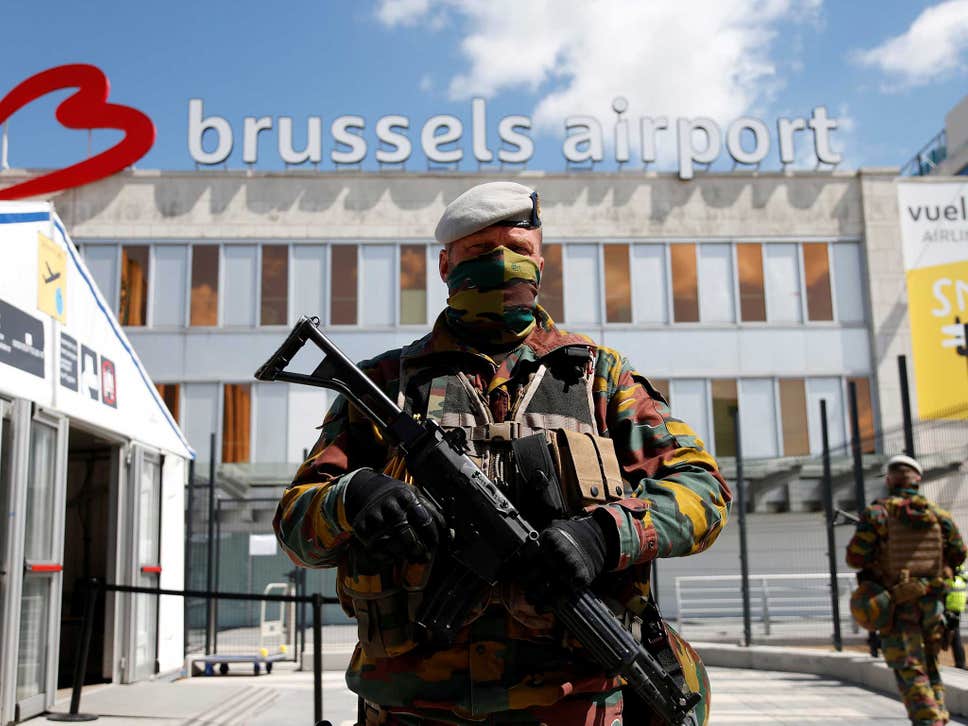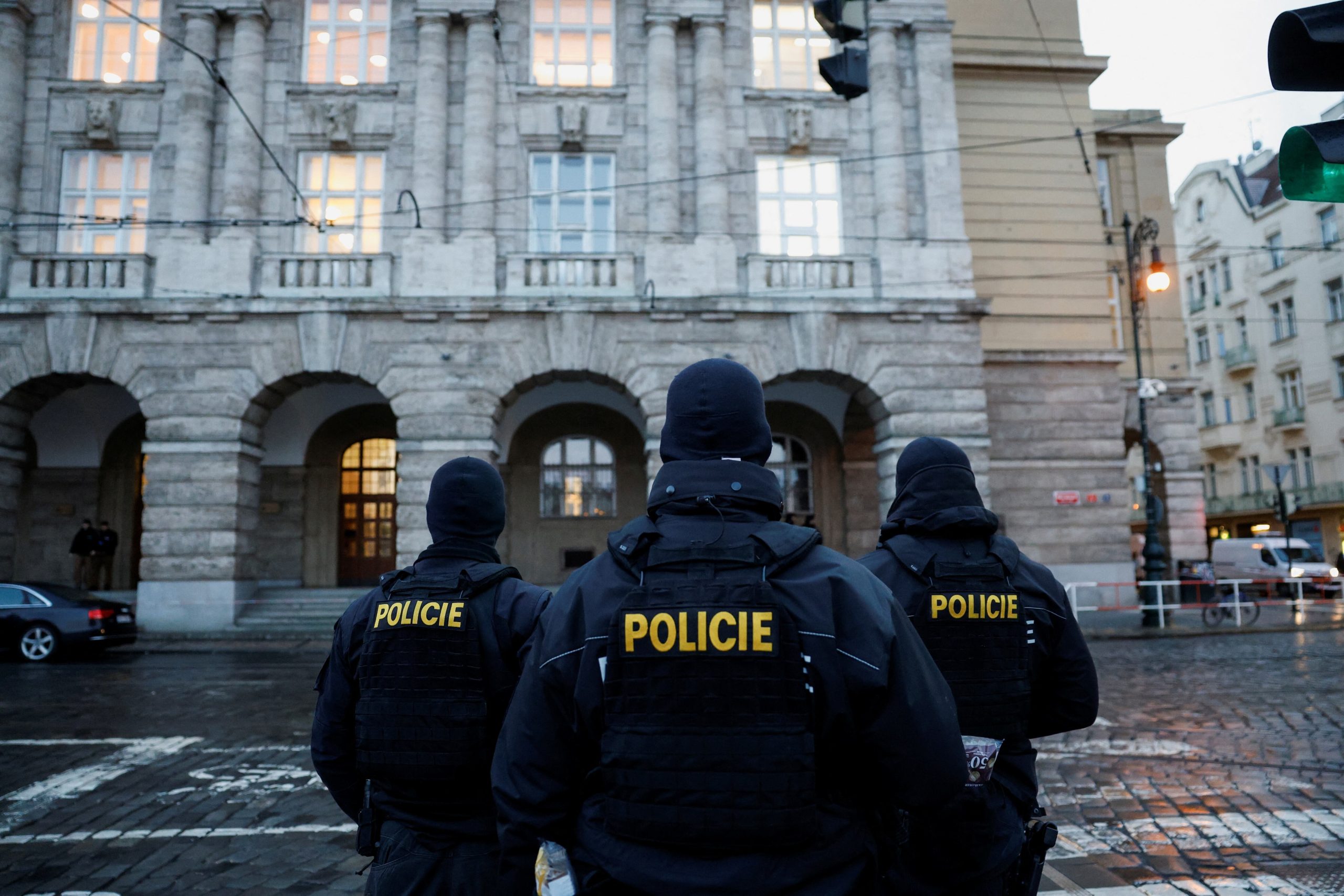European Center for Counterterrorism and Intelligence Studies in Germany and Netherlands.
The Belgian government, like other European governments, fears the return of fighters of Belgian nationality from conflict zones in Syria and Iraq to their country. It considers them time bombs capable of conducting terror acts upon their return. The Belgian authorities renewed its support for an initiative which calls for an international prosecution of ISIS fighters captured in Syria and Iraq, who fought with ISIS. The Belgian intelligence warned from the growing extremism inside Belgium at a time when it was announced that there was activity for 100 extremist organizations that have influence on thousands of Muslims.
Foreign fighters and their families who are in custody of SDF and Iraq
Coordination Unit for Threat Analysis (OCAD/OCAM) said that 442 Belgians left for Syria or Iraq, according to EuroNews on February 20, 2019. 130 of them returned, while 142 were killed. Currently, 6 Belgian men, 17 women, and 32 children, four of them are orphans, are detained in Syria and are facing difficult circumstances, whereas two men are imprisoned in Iraq.
The official spokesman for Brussels government confirmed in a press statement, according to RT on February 21, 2019, that the Belgian National Security Council, in a session headed by the Prime Minister Charles Michel, expressed its support for the idea of achieving “international justice,” in cooperation with other countries, against the captured European ISIS members. Michel has already expressed his hope that the European extremists who are detained in Syria be prosecuted, and he proposed an idea to establish a legal mechanism for that purpose, but without providing additional details.
Belgium’s Position on the Returning Foreign Fighters and their Families
According to Asharq Al Awsat on March 27, 2019, the Belgian government confirmed that it prefers to detain ISIS members in camps inside the conflict zones where they fought, and to send ISIS fighters above 18 years old to justice. The Belgian authorities are actively working to return the children of ISIS members, who are currently in camps inside the Syrian territories. The government refused to set a date or a schedule for achieving that, and described the file as highly critical.
The official Belgian position confirms that the authorities want to facilitate the return of the children who are under 10 years old, provided that one of the parents is Belgian. Koen Geens, the Belgian Minister of Justice, called for a “European solution” and “thinking carefully and considering what involves less security threats.” He said: “we have in North Syria now mothers and children, but also some known fighters,” according to The New Arab on February 19, 2019. The returnees face arrest and interrogation, and those who are suspected to be involved in recruitment and brainwashing operations are sent to special units where they are separated from the rest of prisoners, according to BBC on February 18, 2019.
Belgian Foreign Fighters Trials
On April 14, 2019, Brussels Court sentenced 3 persons to 5-10 years imprisonment. Those persons were among the first groups of Belgian fighters who travelled to fight in conflict zones with extremist militant groups. A Belgian court said that Belgium had won an appeal against a court order that compel it to return two Belgian women convicted with joining ISIS and their six children from Syria.
A judge has ordered Brussels to repatriate Tatiana Wielandt, 26 years old, and Bouchra Abouallal, 25 years old, and their children, whom they had from extremists in the group, from Al Hol camp in Kurdish-controlled territories, Syria. The Belgian government seeks to differentiate between ISIS fighters and their children, as officials say that the children can’t assume the responsibility for what their parents have done. The Appeal Court in Brussels confirmed that the Belgian State is not obliged to do anything to bring “those” home.
Belgium Position on prosecuting foreign fighters in Iraq
The Central Criminal Court in Iraq sentenced a Belgian to death by hanging for membership of ISIS, according to RT on March 18, 2019. He is one of dozens of foreigners who face the same sentence in Iraq. The Belgian Foreign Ministry stated that it is “unable” to give an immediate comment on al-Marshouhi’s case, the second Belgian who was sentenced to death in Iraq for membership of ISIS after Tarek Jadaoun, 30 years old, who is known by Abu Hamza al-Beljiki.
Counterterrorism Policies and Laws in 2019
According to Asharq Al Awsat on January 6, 2019, Belgium withdrew residency and citizenship papers from individuals who were involved in files related to terrorism and extremism. It issued laws and legislations that targeted those who were convicted in extremism and terrorism cases. These laws gave the authorities the right to deport these people outside the country. Governmental decisions were already taken to expel a number of individuals whom the authorities considered a threat on security and society, whether through hate speech, extremist speech, or involvement in terrorist acts.
The Daily Standard confirmed the formation of the so-called local task force, which has 14 branches in different regions and include people who work in police, internal intelligence, state security, and the Coordination Unit for Threat Analysis. They hold a meeting every month to review the file of released prisoners who were influenced by the extremist ideology.
Belgium faces a continuous terrorist threat because of extremism inside prisons. Those convicted with extremism are likely to resume their activities and launch another jihadist wave in the country. The Belgian authorities estimated that 20% of the families of homeschooling-registered students are linked to extremist groups, which could pose a potential threat in the short term that must be taken seriously. The Belgian authorities noted an increase in the number of extremist Salafist organizations and their members’ rejection of the democratic institutions and their performance, while the Belgian authorities don’t have an official data about the number of Salafist organizations in the country.
The violent ideology of these groups is expected to spread widely and their influence on Muslim residents to increase in Belgium, in addition to spreading the feelings of hate and intolerance through social media. This, in the long term, could lead to the rise of parallel societies within the society. The number of imams suspected of being involved in extremist ideology in the Belgian mosques has multiplied. They pose a significant threat and a major source for spreading radical Islamism in Belgium. Thus, it is expected that the Belgian authorities will continue to reject granting visas to a number of imams, and deport imams that there is information about suspicions in their religious speech.
Recommendations
What should be done is to intensify information gathering about extremists; work on facilitating their prosecution; put strategies that aim to counter extremism among the youth, especially inside schools and the youth who leave education without a qualification; provide a program to help families in countering the youth problems throughout school; and introduce training courses for imams that are based on spreading moderate ideology in the face of extremism.
Copyright reserved to the European Center for Counterterrorism and Intelligence Studies




